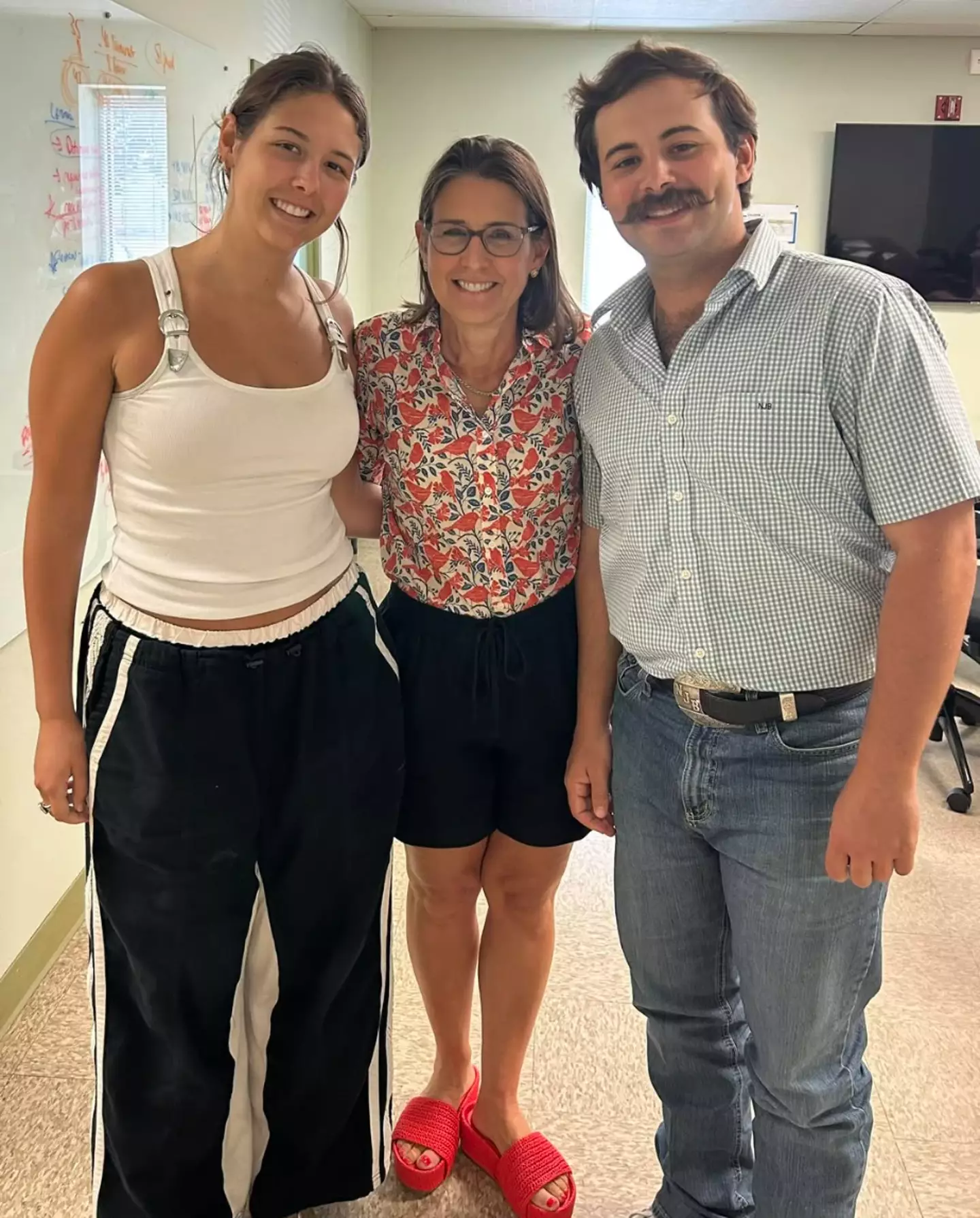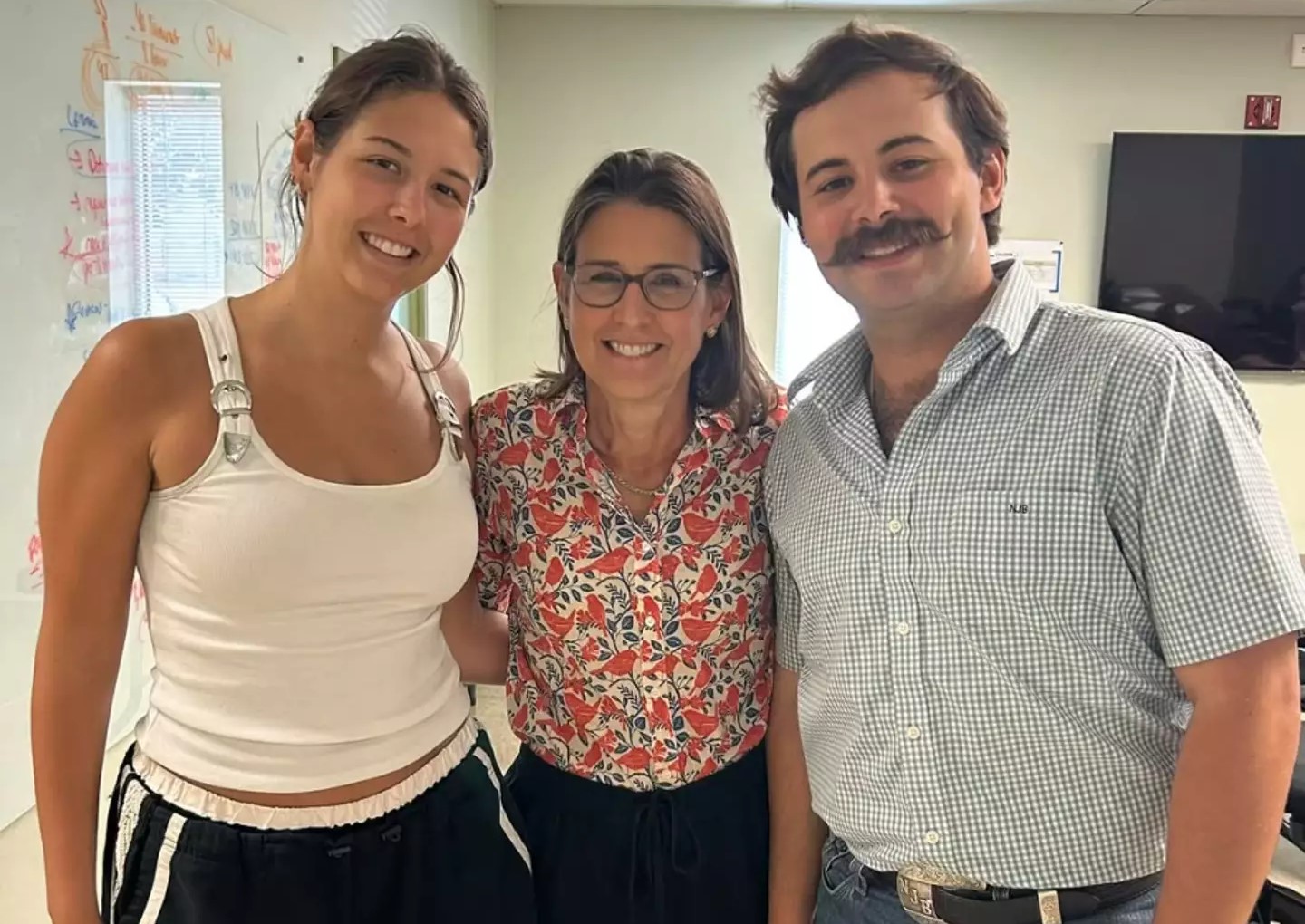The silence that followed was deafening. In the early morning hours of what should have been a peaceful summer weekend, families across central Texas would receive messages that would forever change their lives. Among them was a simple yet haunting text that would become the final words between a young woman and her family: “we’re being washed away.” Then, nothing but digital silence as phone lines went dead and an entire region plunged into chaos.
The devastating flash floods that tore through central Texas on Friday, July 4th, have now claimed at least 104 lives, making it one of the deadliest natural disasters in the state’s recent history. What began as a typical Independence Day weekend quickly transformed into a nightmare of unprecedented proportions, as waters rose with terrifying speed and claimed everything in their path.
A Young Life Cut Short
Among the victims was Joyce Catherine Badon, a vibrant 21-year-old college student who had been spending the holiday weekend with friends in Hunt, Texas. Joyce represented the countless young lives that were suddenly and tragically cut short by the floods—individuals with bright futures, loving families, and dreams that would never be realized.
Joyce had been staying at a house along the Guadalupe River with college friends, likely planning to enjoy the typical summer activities that drew so many to the area: swimming, tubing, and celebrating the Fourth of July holiday. Instead, she found herself trapped as the waters rose with unprecedented speed around their temporary refuge.
According to Louis Deppe, the leader of a volunteer search team, the house where Joyce was staying collapsed around 4 AM local time on Friday. The structure, like so many others in the flood zone, simply couldn’t withstand the immense pressure and force of the rushing water. In those final moments, Joyce managed to send one last message to her family—a desperate plea that would become her final communication with the world she was leaving behind.
“On her cellphone, the last message [her family] got was ‘we’re being washed away’ and the phone went dead,” Deppe explained to Agence France-Presse. Those six words encapsulated the terror and helplessness that Joyce and countless others experienced as they faced the overwhelming power of nature.

Joyce Catherine Badon, 21, (left) has tragically lost her life in the Texas flash flood which has since claimed the lives of 104 people (Facebook/kellye.badon)
Parents’ Heartbreak and Faith
The discovery of Joyce’s body brought both devastating confirmation and a sense of closure to her parents, Ty and Kellye Badon, who had been anxiously awaiting news of their daughter’s fate. The family’s ordeal represents the agonizing uncertainty that hundreds of families across the region experienced as they waited for news of their loved ones.
On Monday, July 7th, Joyce’s father Ty spoke with NBC News, confirming the tragic news that every parent dreads. The pain in his voice was evident as he discussed the loss of his daughter, a young woman who had blessed their family for 21 years with her presence, laughter, and love.
Kellye Badon, Joyce’s mother, turned to social media to share her grief with a wider community that had been following the search efforts. Her Facebook post, while heartbreaking, also demonstrated the remarkable strength and faith that many families have drawn upon during this difficult time.
“God showed us the way we should go this morning!” Kellye wrote in her tribute. “We found our lovely daughter who blessed us for 21 years! We pray to be able to find her three friends soon. Thanks to EVERYONE for the prayers and support. God is good!”
The post revealed another devastating aspect of the tragedy—Joyce’s three friends remained missing, extending the family’s grief beyond their own loss to encompass the continued uncertainty surrounding other young lives. This interconnected web of loss and hope exemplifies how the floods have affected entire communities, creating ripple effects of grief that extend far beyond individual families.
The Broader Human Toll
The official death toll of 104 represents far more than statistics—each number represents a life cut short, a family destroyed, a community forever changed. The distribution of casualties across multiple counties illustrates the widespread nature of the disaster, with Kerr County bearing the heaviest burden at 84 confirmed deaths, a significant increase from the previously reported 68.
Travis County reported seven confirmed casualties, Burnet County four, Williamson County two, Kendall County six, and Tom Green County one. Each county’s loss represents different communities, different stories, and different families grappling with unimaginable grief.
Camp Mystic: A Community’s Worst Nightmare
Perhaps no single location embodies the tragedy more than Camp Mystic, the Christian all-girls summer camp located on the banks of the Guadalupe River. What should have been a place of joy, friendship, and spiritual growth became the site of unthinkable loss. Twenty-seven campers and counselors lost their lives when the floods struck, while eleven people—ten campers and one counselor—remain missing.
The camp, which had been operating for years as a safe haven for young girls to grow in faith and friendship, became a scene of devastation that no parent could have anticipated when they dropped their daughters off for what was supposed to be a fun-filled summer experience. The tragedy at Camp Mystic has particularly resonated with communities across Texas and beyond, as parents everywhere struggle to comprehend how quickly a place of safety can become a site of loss.
The Ongoing Search and Recovery
As search and rescue operations continue, the focus has shifted from finding survivors to recovering bodies and providing closure to families. The dangerous conditions created by the floods—unstable structures, debris-filled waters, and compromised infrastructure—have made these efforts both challenging and hazardous for rescue teams.
Volunteers like Louis Deppe have played crucial roles in the recovery efforts, working alongside professional emergency responders to search every possible location where victims might be found. These civilian volunteers, many of whom have no formal training in search and rescue operations, have demonstrated the remarkable spirit of community support that often emerges in the wake of disasters.
The emotional toll on search and rescue personnel, both professional and volunteer, cannot be understated. Many have worked tirelessly for days, driven by the hope of finding survivors and the responsibility of bringing closure to grieving families. The psychological impact of witnessing such widespread destruction and loss will likely affect these individuals for years to come.
A Community Forever Changed
The floods of July 4th, 2025, will forever mark a turning point for central Texas communities. The disaster has revealed both the devastating power of nature and the incredible resilience of human spirit. As families grieve and communities begin the long process of recovery, the bonds forged through shared trauma will likely strengthen the region’s social fabric.
The tragedy serves as a stark reminder of the increasing frequency and intensity of extreme weather events, and the need for better preparation, early warning systems, and emergency response protocols. While nothing can bring back the 104 lives lost, their memory may inspire improvements that could save lives in future disasters.
As the search for the missing continues and communities begin to rebuild, the final text message from Joyce Catherine Badon—”we’re being washed away”—will remain a haunting reminder of how quickly life can change, and how precious every moment with our loved ones truly is. In those final words, she captured not just her own dire situation, but the fragility of life itself and the importance of cherishing every connection we have while we still can.

